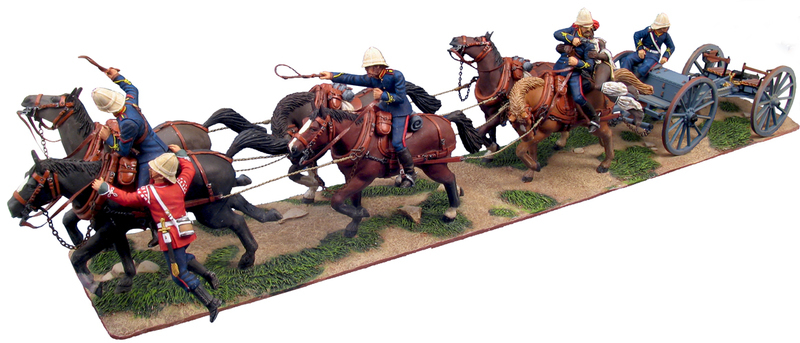The Zulu War – otherwise known as the Anglo-Zulu War
Aug 18th 2017
The Zulu War of 1879 was also known as the Anglo-Zulu War. Fought in South Africa between the British Empire and the Kingdom of Zululand, the public reason behind the invasion by the British was to protect European settlers from aggressors of the indigenous Kingdom of Zululand. In reality, it was most likely the discovery of the great abundance of diamonds in the area that sparked the British aggression.
There are many stories, claims and counterclaims of what actually sparked the Zulu War, but one
thing appears certain: Sir Henry Bartle Frere was up to his neck in it! Sent to South Africa in 1874
as High Commissioner for the British Empire, there is more than a little evidence that he worked
without the approval of the British government to cause a war with the Kingdom of Zululand. His
aim was to achieve what he was sent there for, to bring a large area of the African lands under the
peaceful rule (and exploitation) of the British Crown, much as had been done successfully in
Canada.
In a show of attempting to stop raiding excursions by the Zulu forces into British held territory, Frere delivered an ultimatum to King Cetshwayo kaMpande on December 11th, 1878, which included disbanding his army, laying down their arms and discontinuing certain deeply revered cultural traditions. There was no question that the ultimatum would spark a war, since the conditions were impossible for the Zulu king to meet.
When the ultimatum was not accepted, Frere sent his friend, a general named Lord Chelmsworth, to invade Zululand. After his success in other battles in Africa, and probably not a little because of a certain British prejudice that did not allow them to realize that, just as in Europe, there were many nations in Africa, and each one was different. Just as all white skinned people are not British, all black skinned people are not Xhosa, whom Chelmsworth had easily defeated some years earlier.
Chelmsworth's prejudice caused him to make a serious blunder that resulted in one of the worst defeats of British forces by “native tribesmen” in the history of the British Empire. When the ultimatum sent to King Cetshwayo was not met, he boldly and openly marched his forces into the Kingdom of Zululand uninvited.
As a consequence, the Zulu army attacked on January 22nd, 1879, at Isandlwana, overrunning and destroying the central column of Lord Chelmsworth's separated forces. The British forces, though armed with modern rifles, were no match for the Zulu army, who were armed with traditional spears and shields, and maybe only a small number of ancient and virtually useless muskets. In fact, Zulu warriors eschewed firearms, believing them to be the coward's weapon, able to kill from a safe distance, rather than face to face.
Utterly stunned by Lord Chelmsworth's defeat the British government quickly ordered Sir Garnet Wolseley to relieve him of his command. However, while waiting for Wolseley to arrive, Chelmsworth ignored King Cetshwayo's diplomatic peace overtures and instead attacked the Zulus at Ulundi on July 4th, 1879, intending to decisively defeat the Zulu and salvage his tattered reputation.
Indeed, after only about a half and hour of bombardment by the Royal Artillery, Chelmsworth attacked with all guns blazing, including Gatling guns and rifles, decisively overwhelming the Zulu forces. Chelmsworth's forces suffered ten dead and eighty-seven wounded, while the Zulu forces lost nearly six hundred dead and around one thousand wounded.
Chelmsworth then ordered the Zulu kingdom's capital burned to the ground. From that time forward, the outcome was virtually inevitable, and when Chelmsworth handed over command to Wolseley, the war was over, the Zulu defeated, and the Zulu army dispersed. Such is the inevitable outcome when a well trained, well armed and determined military force meets one that, while determined and well trained, does not have modern weapons.


